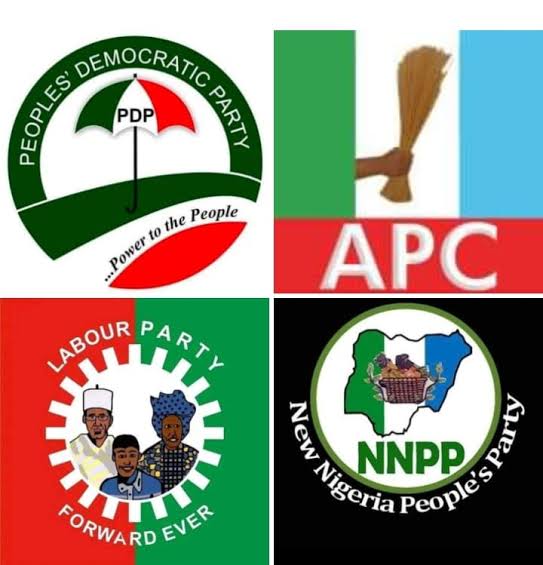The race for Nigeria’s 2027 presidential elections has already begun, and both the Labour Party (LP) and the Peoples Democratic Party (PDP) are facing internal challenges that are diminishing their political strength.
While the PDP is embroiled in a leadership crisis, with key members resigning, the LP has been particularly hard-hit by a mass exodus of elected representatives from the House of Representatives, who are abandoning the party in favor of other platforms, particularly the ruling All Progressives Congress (APC).
The LP, which had made significant strides in the 2023 elections with 35 seats in the House of Representatives, has seen a dramatic drop in its parliamentary presence.
The defections started soon after the 10th National Assembly convened, with many LP lawmakers leaving the party citing internal instability.
Among those who recently defected are Tochukwu Okere (Imo), Donatus Mathew (Kaduna), Bassey Akiba (Cross River), Iyawe Esosa (Edo), and Daulyop Fom (Plateau).
These defections have left the party with just 17 seats in the House, down from its initial 35, a significant blow to its influence in the National Assembly.
Senator Francis Onyewuchi from Imo East also joined the APC, reportedly with the influence of Governor Hope Uzodinma.
Analysts believe the internal divisions and alleged APC infiltration within the LP are key factors driving the defections.
In response to these challenges, LP leaders, including presidential candidate, Peter Obi and Abia State Governor, Dr. Alex Otti, attempted to restructure the party.
A 22-member caretaker committee led by Senator Nenadi Usman was appointed, but this move faced resistance from the party’s National Chairman, Julius Abure, who is seeking to legally validate his position.
The restructuring is currently under legal scrutiny, with the dispute unresolved.
The defections have also sparked tensions within the LP, with party leaders such as National Publicity Secretary Obiora Ifoh claiming the party remains united under Abure’s leadership.
However, critics, including LP chieftain Chief Peter Ameh, argue that the defections show a lack of respect for the party’s constitution and its voters, suggesting that the party’s ability to address internal crises is in question.
The PDP, on its part, is also struggling with leadership issues that are undermining its unity and effectiveness.
In Delta State, the defection of Hon. Erhiatake Ibori-Suenu to the APC is a significant blow to the party’s standing in the Niger Delta, a region that has been a stronghold for the PDP since 1998.
At the national level, the PDP is in the midst of a leadership power struggle between factions loyal to former Vice President Atiku Abubakar and those aligned with the party’s acting National Chairman, Ambassador Umar Damagum.
The crisis has intensified since the resignation of former National Chairman Iyorchia Ayu, and factions are working to control the party’s direction ahead of the 2027 elections.
The defections and internal strife are casting a shadow over the opposition’s ability to challenge the ruling APC in the upcoming elections.
With the APC benefiting from these defections, experts warn that Nigeria’s democracy may suffer if opposition parties continue to weaken, especially as the 2027 presidential race draws closer.
Some party members, such as Chief Peter Ameh, argue that the current political environment undermines the essence of democracy, which requires a strong opposition to hold the government accountable.
He suggests that constitutional reforms should be made to prevent lawmakers from defecting without losing their seats, as this undermines the trust of voters.
Meanwhile, the PDP’s internal conflict is far from over.
Despite attempts to resolve the crisis, the party remains divided, with some members calling for a return to its founding principles of justice, fairness, and equity.
The current leadership, including acting Chairman Damagum, faces intense pressure from rival factions, particularly those sympathetic to Nyesom Wike, a key figure in the G-5 Governors’ group.
Wike’s faction is reportedly working to extend Damagum’s tenure until 2025, potentially allowing the PDP to shift its focus towards rebuilding the party’s base.
However, critics argue that Atiku’s ongoing presidential ambition is exacerbating divisions within the party and distracting it from addressing its internal issues.
Some PDP leaders believe that the party can only regain its strength if it reunites around a common goal, one that respects the party’s constitution and fosters fairness across all regions.
They warn that without such efforts, the APC will continue to dominate, and the opposition will remain fragmented.
As political strategies unfold, both the LP and PDP must address their internal crises to remain viable contenders in the 2027 presidential race.
However, with defections, power struggles, and a divided opposition, the path to victory for these parties appears increasingly challenging.

















